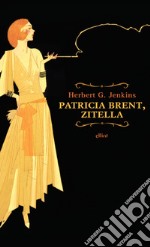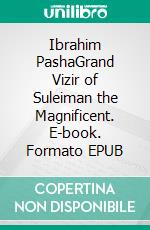H Jenkins eBooks
eBooks di H Jenkins di Formato Epub
The night club. E-book. Formato EPUB Herbert George Jenkins - Simone Vannini, 2016 -
The idea originated with Bindle, who is never so happy as when listening to or telling a story. Sooner or later he will so guide conversation as to challenge from someone a reminiscence, or failing that, he will himself assume the burden of responsibility, and tell of how he engineered one of his "little jokes," as he calls them."I likes to 'ear 'im tellin' the tale," Bindle remarked one evening, as we sat in Dick Little's flat. Dick had just finished an extravagant and highly-coloured account of an Oxford "rag." "Fancy young gentlemen be'avin' like that," Bindle continued, "instead o' learnin' to be parsons. P'raps that's why they looks such gentle Jims when they gets into a stiff collar," and Bindle buried a wink in his tankard.
Patricia Brent, zitella. E-book. Formato EPUB Herbert Jenkins - Elliot, 2014 -
Siamo a Londra, durante la Prima guerra mondiale. La giovane Patricia lavora per un personaggio politico dalle scarse capacità e alloggia alla pensione Galvin, presso la quale risiede una variegata comunità che si ritrova ogni sera a cena attorno allo stesso tavolo. Un giorno, per caso, la ragazza ascolta una conversazione tra due ospiti che parlano di lei con accenti pietosi, sottolineando come la ragazza “non abbia nessuno che la inviti fuori”. Sentendosi umiliata, in un momento di rabbia Patricia annuncia di aver ricevuto per l’indomani un invito al ristorante dal suo fidanzato. Nulla di strano, se non fosse che il fidanzato non esiste né si intravede all’orizzonte. Pensando di essersela cavata con una piccola bugia e un pranzetto solitario, il giorno dopo, giunta al ristorante, si rende conto invece di essersi cacciata in un bel pasticcio, quando nota alcuni ospiti della pensione seduti a un tavolo con l’evidente scopo di spiarla. Per paura di essere scoperta, Patricia si avvicina a un giovane ufficiale chiedendogli di aiutarla a tenere il gioco. È così che fa la conoscenza di Lord Peter Bowen, ed è da lì che prende il via una divertente, raffinata e modernissima commedia degli equivoci: il giovane, infatti, non si limita a sostenerla nella messinscena al ristorante ma, con il passare dei giorni, si fa sempre più insistente perché il fidanzamento si concretizzi, tra lo sgomento di Patricia e molti, spassosi malintesi. Pubblicato per la prima volta in Inghilterra nel 1918, questo romantico e brillante romanzo ebbe un tale successo commerciale da essere trasposto in una versione cinematografica, e ha conosciuto una duratura fortuna editoriale che lo vede tuttora ristampato.
Ibrahim PashaGrand Vizir of Suleiman the Magnificent. E-book. Formato EPUB Hester Jenkins - Perennial Press, 2018 -
Ibrahim was a Christian of base extraction, the son of a Greek sailor of Parga. He was born in 1494. In his childhood he was captured by Turkish corsairs. It would seem that he was first sold to a widow of Magnesia, who clothed him well and had him well educated, and especially trained to perform upon a musical instrument resembling the violin, which he learned to play beautifully. Whether it was on one of his expeditions to Asia Minor that Suleiman, son of the reigning monarch Selim I, met Ibrahim and was won by his charm and his musical ability, or whether Ibrahim was taken to Constantinople and there sold to the prince, cannot be determined from conflicting reports, but the fact that Ibrahim became Suleiman’s property is incontestable. Ibrahim never forgot his origin or his family. In 1527 his father came to Constantinople to visit him, and later he had his mother and his two brothers at the Palace. He was able to help his father substantially, giving him a sandjak or governorship. Of course Ibrahim adopted Islam, else there were no story to tell, for a Christian could have had no career in Turkey in that day. Baudier says that the boy Ibrahim was carried to Constantinople by “them which exact the tribute of Christian Children.” This tribute of Christian children had been levied since the reign of Orkhan (1326–1361) and was the material of which the redoubtable army of janissaries was formed. These children, separated from their own countries and their families, and practically always converted to Islam, were for the most part trained in military camps and forbidden to marry. Therefore they had no interest except in war, and no loyalty except to the sultan. Thus they developed into the finest military machine the world had known, the most perfect instrument for a conqueror’s use, but a dangerous force in time of peace...


